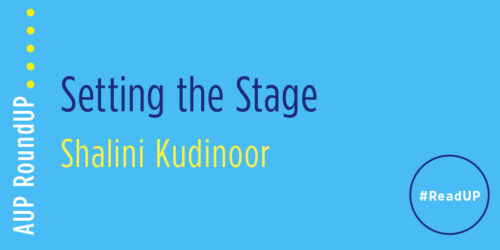University Press Roundup

Welcome to our weekly roundup of the best articles from the blogs of academic publishers! As always, if you particularly enjoy something or think that we missed an important post, please let us know in the comments. (And look back at our University Press Roundup Manifesto to see why we do this post every Friday.)
Several presses have this week compiled reading lists for Black History Month. Check out those lists from Temple University, from Princeton University, and from the University Press of Florida. The University Press of Kentucky have also featured a roundup of new releases in African-American studies, and the University of Nebraska Press excerpts the new book Before Jackie Robinson: The Transcendent Role of Black Sporting Pioneers by Gerald R. Gems.
Other reading lists compiled this week which may be of interest include Books By and About Refugees and Immigrants in America, from the University of Nebraska Press, and Six Reads to Celebrate Lincoln’s Legacy, from the University of Kentucky Press, in anticipation of the anniversary of Abraham Lincoln’s birth this weekend.
Following up on last week’s mention of a post from the University of Illinois Press on the legacy of George Orwell’s 1984, the Stanford University Press features another take on the classic text’s meaning to the present. Karen Fang, author of Arresting Cinema: Surveillance in Hong Kong Film (2017), posits that Orwell’s book also has renewed relevance to current Sino-American relations because it “explicitly portrays Asia as a bogeyman and a pawn in the militarized rhetoric of fear in which Big Brother traffics.” The general importance of resistance as a fundamental element in American politics is also a topic of note this week: at the University of Minnesota Press blog, Alexis Shotwell, author of Against Purity: Living Ethically in Compromised Times (2016), writes against the idea of ‘pure’ politics or ideology, insisting that “we do better to aim for a politics of imperfection.”
At the Harvard University blog a similar theme is taken up by David Moss, author of Democracy: A Case Study (2017), who warns against the dangers that may arise when “students are…left with the impression that a successful democracy is virtually automatic, given the right blueprint.” Rounding off this week’s political entries, Candian author David Johnson also insists on education about government being the bedrock of any political system, writing for the University of Toronto Press about the new edition of his book Thinking Government: Public Administration and Politics in Canada.
Finally this week, a fascinating topic from the Oxford University Press blog: in ‘Was Chaucer really a “writer”?‘, Christopher Cannon, author of the new From Literacy to Literature: England, 1300-1400, unpacks the idea of Chaucer being not a literate writer as we understand the term today, but a late medieval type of poet whose work depended fundamentally on slowly-vanishing oral traditions.
Thanks for reading! As always, we hope that you enjoyed the links. Please let us know what you think in the comments!



